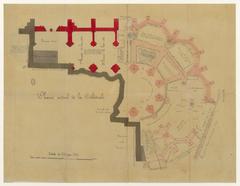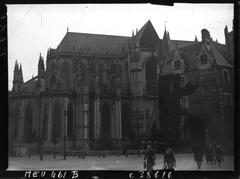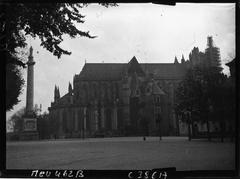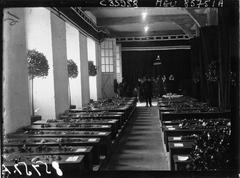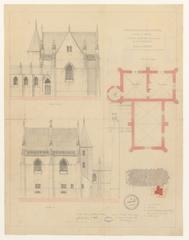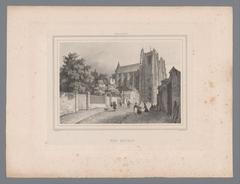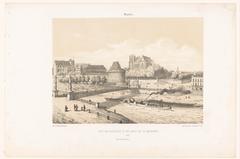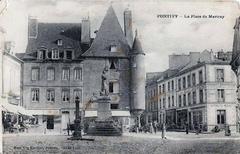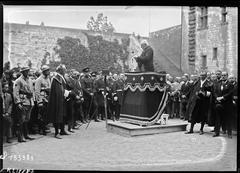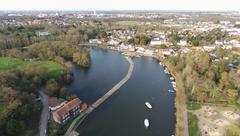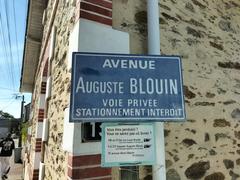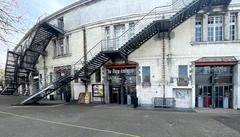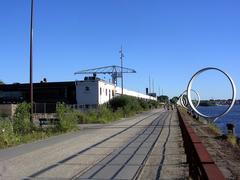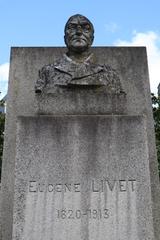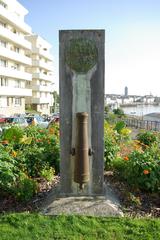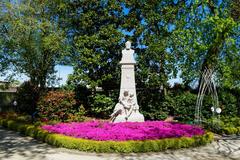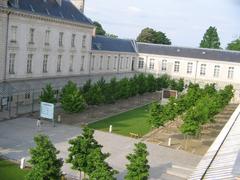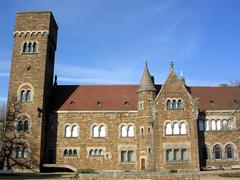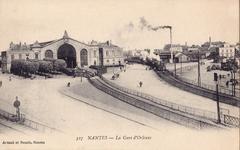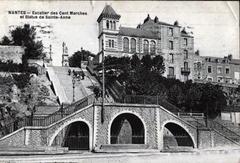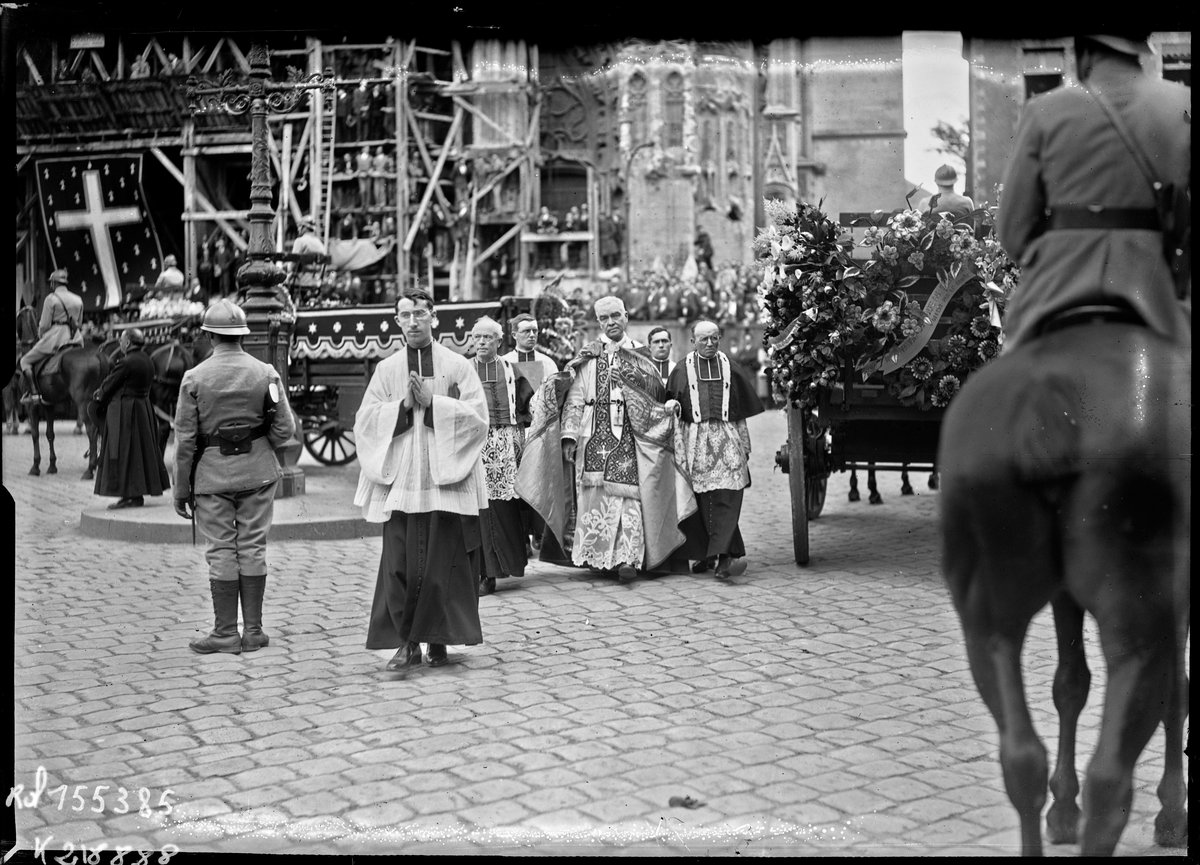
Nantes Cathedral Visiting Hours, Tickets & Complete Visitor Guide 2025
Date: 14/06/2025
Introduction
Nantes Cathedral, officially known as Cathédrale Saint-Pierre-et-Saint-Paul de Nantes, is a cornerstone of the city’s historical, religious, and architectural identity. This Flamboyant Gothic masterpiece—whose construction spanned over 450 years—stands as a testament to Nantes’ resilience, artistry, and spiritual traditions. With its majestic white limestone façade, soaring twin towers, and a storied past marked by triumph and tragedy, the cathedral draws visitors from around the world.
This guide provides up-to-date practical information for visiting Nantes Cathedral in 2025, including opening hours, ticketing, accessibility, restoration updates, and tips for experiencing the cathedral and its nearby attractions. Whether you’re a history enthusiast, architecture lover, or first-time traveler to Nantes, this comprehensive resource ensures you make the most of your visit.
For the latest visitor information, always refer to the official Nantes Cathedral website and the Nantes tourism portal. (Travelfrance.tips, Le Voyage à Nantes, Connexion France)
Quick Contents
- Historical Overview & Significance
- Construction Timeline & Architectural Features
- Restoration Status & 2025 Reopening
- Visiting Hours, Tickets & Accessibility
- What to See: Highlights & Artistic Heritage
- Travel Tips & Nearby Attractions
- Events, Tours & Practical Info
- Frequently Asked Questions (FAQ)
- Summary & Further Resources
Historical Overview & Significance
Origins and Spiritual Foundations
The site of Nantes Cathedral has been a place of sacred significance since pre-Christian times, once home to a druidic temple, later replaced in the 3rd century by a Christian chapel dedicated to Saints Peter and Paul (Travelfrance.tips). This early foundation set the stage for the cathedral’s enduring spiritual role in the region.
Construction Timeline: 1434–1891
Construction of the current cathedral began in 1434 under Duke John V of Brittany and Bishop Jean de Malestroit (en.wikipedia.org). Guided first by architect Guillaume de Dammartin, the building project spanned nearly five centuries due to political, economic, and artistic shifts. The result is a harmonious fusion of late Gothic and Renaissance expressions, with completion finally reached in 1891 (populartimelines.com).
Key Historical Events
- French Revolution: Suffered desecration and damage as a symbol of the ancien régime (nannybag.com).
- World War II: Bombing raids destroyed much of the stained glass and damaged the structure (populartimelines.com).
- 1972 Fire: Restoration efforts followed a major blaze caused during works (hotelabatjournantes.fr).
- 2020 Arson: A devastating fire destroyed the grand organ and damaged the roof, prompting a multi-year restoration (Connexion France).
Amid these challenges, Nantes Cathedral has remained a symbol of faith, resilience, and community for the city and Brittany as a whole.
Restoration Status & 2025 Reopening
Following the 2020 arson attack, Nantes Cathedral has undergone intensive restoration, backed by a €32 million government investment (Metropole Nantes). The restoration covers the roof, façade, stained glass, and organ, with modern fire prevention upgrades.
- Partial Reopening: Scheduled for September 28, 2025, aligning with the original dedication anniversary (Connexion France).
- Access During Restoration: Some areas, including the main entrance and select chapels, may remain closed as work continues into late 2025. Until reopening, outdoor exhibitions in the Psalette garden offer insight into the restoration and history (France Voyage).
Visiting Hours, Tickets & Accessibility
Opening Hours
- Reopening Date: September 28, 2025 (partial access; full reopening to follow).
- Typical Hours: Before closure, hours were 8:30 am–7:00 pm daily, with shorter hours on Sundays and religious holidays. Final visiting hours for 2025 will be published on the official website.
Tickets & Admission
- General Admission: Free entry to the nave and side chapels.
- Special Exhibitions & Tours: Guided tours and some exhibitions may require tickets, bookable via the cathedral or Nantes tourism office.
Accessibility
- Mobility: The cathedral is located on a flat, paved square. Wheelchair access to the main areas is provided; some crypts or upper galleries may be restricted during restoration.
- Assistance: Staff are available to help visitors with reduced mobility; accessible entrances will be clearly marked (Connexion France).
What to See: Highlights & Artistic Heritage
Exterior & Façade
- White Limestone Towers: Twin towers rise to 63 meters, a striking example of Flamboyant Gothic style (Le Voyage à Nantes).
- Sculptural Details: Intricate stone carvings, pinnacles, and an exterior pulpit are visible from the square (France Voyage).
Interior
- Nave & Vaults: The nave’s soaring vaults reach 37.5 meters—taller than Notre-Dame de Paris—bathed in natural light (Le Voyage à Nantes).
- Stained Glass: A mixture of original and modern windows depict saints, biblical stories, and Breton history (Learn Glassblowing).
- Renaissance Tomb of François II & Marguerite de Foix: A sculptural masterpiece by Michel Colombe (1507), featuring allegorical figures and the effigies of the last Duke and Duchess of Brittany (Le Voyage à Nantes).
- Grand Organ: The 1621 organ, destroyed in 2020, is being painstakingly restored and will resume its place as a centerpiece for music and liturgy (Le Voyage à Nantes).
Crypts & Exhibitions
- Romanesque and 19th-Century Crypts: Explore layers of history, archaeological finds, and exhibitions on the cathedral’s evolution (Le Voyage à Nantes).
- Psalette Garden: Outdoor exhibitions and interpretive panels share restoration updates and the cathedral’s story.
Travel Tips & Nearby Attractions
Getting There
- Address: Place Saint-Pierre, 44000 Nantes, France.
- Tramway: Line 1 (stop: Duchesse Anne), a short walk from the SNCF train station (Château des Ducs de Bretagne).
- Busway: Line 4, stop at Duchesse Anne.
- Car: Nearby parking at Cathédrale, Moulin-Mairie, Baco, and Cité internationale des Congrès.
- Cycling: Nantes is bike-friendly, with major cycling routes nearby.
Best Times to Visit
- Season: June offers mild weather (12°C–22°C / 54°F–72°F), perfect for exploring on foot (Wanderlog).
- Time of Day: Early mornings and late afternoons are less crowded.
Photography & Etiquette
- Photography: Allowed inside the cathedral; flash and tripods may be restricted, especially during services or restoration work.
- Dress Code: Modest attire is recommended; cover shoulders and knees, especially during religious ceremonies.
Safety
- Security: Expect bag checks at entrances; large luggage is not permitted (Château des Ducs de Bretagne).
Nearby Attractions
- Château des Ducs de Bretagne: Home to the Nantes History Museum and panoramic ramparts (Château des Ducs de Bretagne).
- Jardin des Plantes: A lush botanical garden, ideal for relaxation (Wanderlog).
- Passage Pommeraye: Elegant 19th-century shopping arcade (Civitatis).
- Bouffay Quarter: Historic streets with cafés, crêperies, and shops offering local specialties.
Events, Tours & Practical Info
Liturgical Events & Concerts
- Major Celebrations: Christmas, Easter, Pentecost, ordinations, and the annual fête de la dédicace (September 30) (Cathedrale-Nantes.fr).
- Sacred-Music Concerts: Renowned for choral and organ music; tickets (~€20) available online and at the cathedral (Lonely Planet).
Guided Tours
- Booking: Available via the official website and tourist office.
- Languages: Tours offered in multiple languages; booking in advance recommended.
Facilities
- Restrooms: Public toilets nearby; cathedral facilities may be limited during restoration.
- Families: The square is stroller-friendly; gardens offer space for children.
- Souvenirs: Cathedral shop may remain closed; local shops offer religious and cultural gifts.
Frequently Asked Questions (FAQ)
Q: When does Nantes Cathedral reopen?
A: Partial reopening is scheduled for September 28, 2025; full reopening will be phased as restoration continues.
Q: What are the expected opening hours?
A: Previously 8:30 am to 7:00 pm daily; confirm updated hours on the official site closer to reopening.
Q: Is there an admission fee?
A: Entry is free; guided tours and concerts may require tickets.
Q: Are guided tours available?
A: Yes, tours resume upon reopening—book online or at the tourist office.
Q: How accessible is the cathedral?
A: The main areas are wheelchair accessible; some areas may be restricted during ongoing works.
Q: Can I attend religious services?
A: Services are currently held at Chapelle de l’Immaculée and Saint Similien; will return to the cathedral upon reopening.
Q: What are the best nearby attractions?
A: Château des Ducs de Bretagne, Jardin des Plantes, Passage Pommeraye, Bouffay Quarter.
Summary & Further Resources
Nantes Cathedral embodies centuries of faith, artistry, and endurance. From its druidic roots and medieval splendor to its ongoing restoration, it remains a beacon of Nantes’ cultural vitality. The phased reopening in 2025 marks a renewal for both the cathedral and the city. Plan to visit not only the cathedral itself but also the rich tapestry of attractions nearby. For the most current information on hours, tickets, and events, check the official Nantes Cathedral site and Nantes tourism website. Enhance your experience with the Audiala app for expert audio guides and personalized tips.
Official Sources and Further Reading
- Nantes Cathedral Visiting Hours, Tickets & History: Travelfrance.tips (2025)
- Nantes Cathedral Wikipedia (2025)
- Nantes Cathedral Timeline and Restoration Details (2025)
- Le Voyage à Nantes: Architectural and Artistic Guide (2025)
- Connexion France: Restoration and Visitor Information (2025)
- Nantes Official Tourism Website (2025)
- Nantes Cathedral Official Website (2025)
- Lonely Planet Guide to Nantes Cathedral (2025)
- France Voyage: Nantes Historical Sites and Tips (2025)
- Metropole Nantes News on Cathedral Reopening (2025)
Plan your visit, stay informed, and immerse yourself in the layered history and living culture of Nantes Cathedral—one of France’s true architectural treasures.


